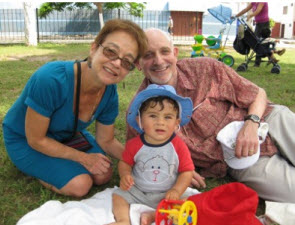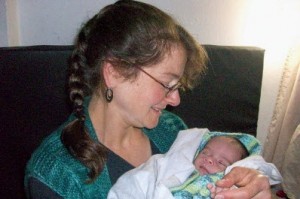New York native Lori Berenson, who has been imprisoned in Peru for collaborating with leftist Tupac Amaru Revolutionary Movement (MRTA) guerrillas, was freed on Tuesday after spending 15 years behind bars.
“On May 25, 2010 a Peruvian judge, after carefully studying Lori’s application for what in Peru is termed ‘conditional liberty’ (parole), determined that Lori has earned her freedom,” said an emailed statement from her parents — Mark and Rhoda — who have campaigned tirelessly for Berenson’s release since her November 1995 arrest.
Berenson gave birth to a baby boy in prison a year ago, Salvador Anespori Apari Berenson. She is married to human rights attorney Anibal Apari, a paroled former MRTA member, who represented her for her parole appeal.
[youtube width=”300″ height=”280″]http://www.youtube.com/watch?v=w827ZTQPLTw[/youtube]The court decision was carried live on cable news Canal N, which captured the moment when Berenson heard she will be released after 15 years in prison.“Lori will be a single mom – Anibal and Lori are legally separated but remain friends and both share concerns for Salvador’s proper upbringing,” Berenson’s parents said in their statement.

Upon his release from prison in 2003, Apari married the New York activist and returned to law school. He later worked in an organization that provides legal aid to people accused of subversion.
“Lori and her son Salvador will be leaving prison in a few days and moving to an apartment in Lima,” the statement continued.
Berenson, 40, was granted parole based on a legislative decree that was passed in 2003 during the administration of former President Alejandro Toledo. The decree allows inmates who were charged with terrorism to gain conditional parole when they have completed three-quarters of their sentence.
According to daily El Comercio, the conditions of Berenson’s release state that she is unable to leave Peru or to visit inmates who have been found guilty of terrorism charges.

Almost 500 people who were convicted of terrorism charges have been granted conditional parole from 2003 to December 2009.
A former Massachussets Institute of Technology student, Berenson was arrested on a public bus in downtown Lima on November 30, 1995 and charged with helping plan a thwarted takeover of Peru’s Congress. Berenson was sentenced to life by a secret military court for “treason against the fatherland,” but that conviction was vacated in 2000 and she was retried by a civilian court.
In 2004, the Inter-American Court of Human Rights upheld the civilian court’s ruling, rejecting Berenson’s legal argument that the second conviction amounted to double jeopardy and closing her last recourse to appeal her 20-year sentence. The Costa Rica-based court’s decision came after years of rulings against Peru for its draconian counter-terrorism laws.
The MRTA, inactive since the late 1990s, was a Cuban-inspired guerrilla group that waged a campaign of assassinations, kidnappings and bombings, but was dwarfed in the shadow of the far more violent and deadly Maoist Shining Path. According to Peru’s Truth and Reconciliation Commission, the MRTA was responsible for less than 2 percent of the estimated 70,000 deaths caused by political violence between 1980 and 2000.
Berenson had maintained that she was a political prisoner and that she never knowingly collaborated with the MRTA, which is best known for its December 1996 raid on a VIP party in the Japanese Ambassador’s residence in Lima, and an ensuing four-month standoff that ended with a daring commando raid that killed all 14 of the rebels, and saved all but one of 72 hostages.
The rebels had demanded freedom for hundreds of imprisoned comrades. Berenson was No. 3 on the list.
Peruvians still remember Berenson’s Jan. 8, 1996, appearance before television cameras, when she made her now famous declaration in defense of the guerrilla group. With fists clenched at her sides, her face contorted in anger, she shouted: “There are no criminal terrorists in the MRTA. It is a revolutionary movement.”
The hooded military judges convicted her days later of treason, denying her the right to present a legal defense or cross examine prosecution witnesses.
“I am innocent of all charges against me. Neither of my trials, in the civilian or military court, has proven me guilty of any crime,” said Berenson in her closing statement in 2001. “I have been called a terrorist, a term that has been used and abused in Peruvian society for far too many years, mostly because of the psychological impact of a concept that brings to mind indiscriminate violence designed to terrorize; irrational destructive violence; deadly, senseless terror. I am not a terrorist, and as I stated in this courtroom before, I condemn terrorism, I always have.”





